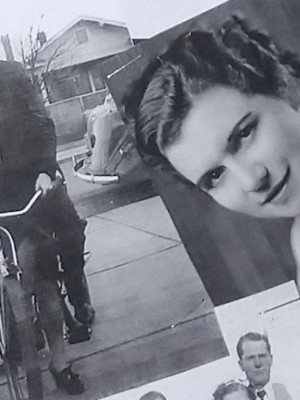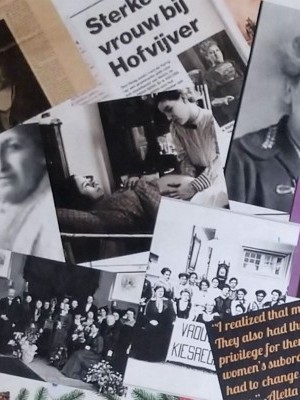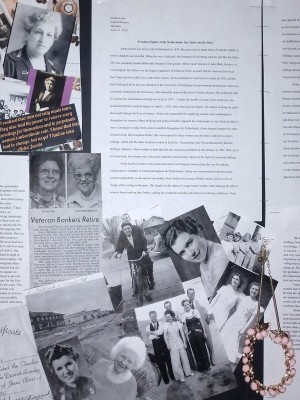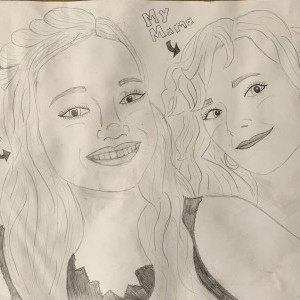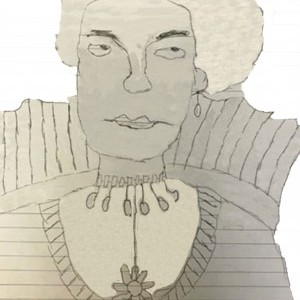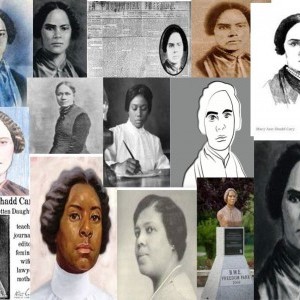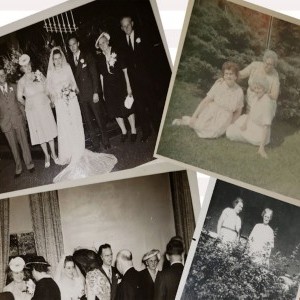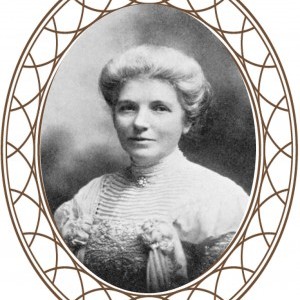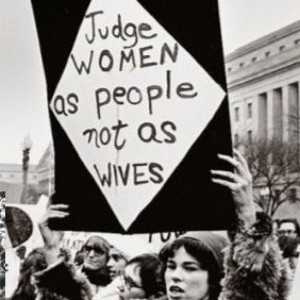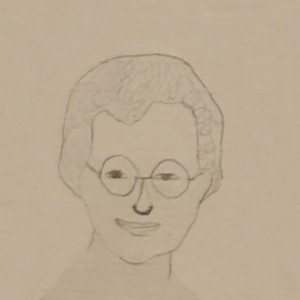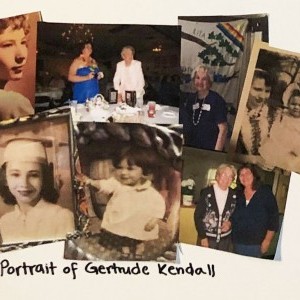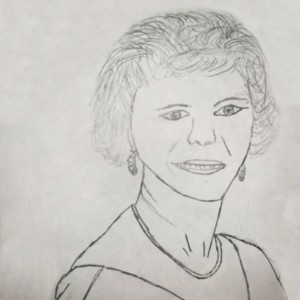Jordan Lantz
Rutherford B. Hayes High School | Delaware City, OH | 10th Grade
Inspirational Family Member
My Great-Grandmother - Breaking Tradition
Illa Lusk was feisty in many ways, so as a child I was intimidated at times by her personality. Through many questions, I found out where she developed her fiery spirit. My Great-Grandma's full name was Illa Lorene Lusk. She was born in 1915 and grew up in Idaho. During this time, the Great Depression was right around the corner. Illa lived in a farming community and did not have much money. When the Great Depression hit the U.S, Illa's family was hit hard, so Illa's family and the entire community suffered significant loss of wealth and resources. Illa's daughter Carol Storm added, "There was really no relief from that poverty as there is today. No food stamps, no welfare checks, no government assistance. Families and communities tried to help each other, but in a farming community, everyone was struggling." Illa was the oldest of her three sisters, so she understood that there were not enough resources for all of them. Illa was sent to her great-uncle in Northern Utah. She stayed with her great-uncle for two years and graduated high school. Since the Great Depression was still ongoing, Illa moved to Pocatello, Idaho, and found work by taking care of two children from a wealthy family. She was given a place to stay along with one meal a day. Illa would often go hungry with such little resources.
When the election of 1932 arrived, women had won the right to vote. Illa never had laws restricting her right to vote. In states like Idaho, Colorado, Wyoming, and Utah the right to vote was open to both men and women. Although Illa had the right to vote, she never concerned herself with it. She decided to go against what was known as a traditional family. She attended business school at night in hopes of a better life. After her graduation, she was hired as a bookkeeper for an electrical company. Illa was not the only woman defying odds in the business world. She rented an apartment alongside others who wanted a better education and a better life. Illa not only wanted a better life for herself, but she also wanted a better life for her family. She used the money she earned to help her sisters acquire an education. Illa married and had three children. Even after her first child, Illa was determined to provide her family with a better life. In so much, she joined the work force and became a bookkeeper for the First Security Bank. After twenty years of hard work my great-grandma retired. Illa's daughter also said, "Her goal was always to provide a better life for her family and to try to keep those she loved from ever experiencing the poverty and hardships that she had known." My astounding Great-Grandma lived to be almost 101 years old; she was barely five feet tall, and she still lived to be one of the most incredible women I knew. Her love for education pushed her through this country's crisis and she defied odds along the way.
Historical Figure I Admire
Aletta Jacobs - Freedom Fighter for the Netherlands
Aletta Jacobs was born in the Netherlands in 1854. She grew up in a large family; being the eighth of twelve children was stressful. When she was a little girl, she dreamed of becoming a doctor just like her father. She was constantly treated differently because of her gender. Aletta wasn't allowed to take Math, Science, or even English. Her father was her biggest supporter. He believed in her so much that he convinced the local boys' high school to allow her to take their classes. Aletta continued to work hard in school. In 1872, all that hard work paid off as she was admitted to the University of Gröningen by government permission. Aletta was constantly doubted by her professors, who ultimately opposed the idea of women doctors. She defied all odds by passing the mathematics and physics exam in 1876. Despite the doubts of some of her professors, she graduated with her medical degree on April 2, 1878. After obtaining her degree, she started working on a plan that would change the lives of women. Aletta was responsible for supplying women with contraceptives throughout her country. Many religious and political leaders opposed her contraceptives, but Aletta decided to start a campaign to make birth control available throughout the Netherlands. Aletta became inspired by other feminist work, like Josephine Butler's. She was inspired by these women and decided to fight for women's suffrage. Aletta and the other feminists worked to build the Vereeniging voor Vrouwenkiesrecht (Woman Suffrage Alliance). Aletta worked so hard that she was elected as president of this alliance in 1903. With all of her hard work, she became one of the most important international figures in the fight for universal suffrage.
Aletta Jacobs became a very successful doctor and helping women along the way by making contraceptives available to women throughout the Netherlands. Aletta was overwhelmed with how many women needed help, so she opened up another clinic dedicated to issues of birth control, and was free of charge while tending to the poor. She fought for the rights of young female workers after noticing the effects extreme hours took on their bodies, calling for a reduced workday and improved working conditions. Aletta was ignored at first, but by 1902 Dutch laws regarding the workday were changed. The maximum labor came in eleven-hour shifts and breaks were mandated every hour. In 1882, Aletta joined the still small Dutch suffrage movement to continue to fight for women's rights. Aletta was refused the right to register to vote, even though she fulfilled the Dutch voter's law as a taxpayer. When she brought the case to her Region's Court of Appeal it was rejected, and since then her work hasn't gone unnoticed. After the case, the fledgling Dutch Women’s Suffrage Association reached out and invited her to become a member. In 1883, Dutch women were banned from voting once the government changed the constitution to "man" in 1887. This increased the growth of the suffrage movement and Aletta became a very active member. In 1903 Aletta was elected president of the Association and held the position until 1919.
Aletta was also a passionate internationalist and pacifist and tried to keep bonds internationally of women coming together. Then, after WWI started, she was in a good position to keep the conversation of Women leaders and different war powers going towards the suffrage movement. Ann Oakley talks about Jacobs' commitment to the suffrage movement, "Jacobs’ commitment to pacifism led to the idea of an international meeting of women pacifists .... 1,200 women from 12 different countries went to that meeting to talk about war and peace"(Ann Oakley). April 1915, was when she organized the meeting between German feminists and pacifists. The Dutch congress passed the idea of an International Committee of Women for Permanent Peace (ICWPP) and later became the International Committee of Women for Permanent Peace and Freedom. This organization was dedicated to peace and women's equal citizenship throughout the world. Aletta Jacobs stepped down from her position in 1919, but her work didn't stop there. She continued traveling the world and also continuing her work through writing. She wrote many articles on women's rights, peace, and medical articles on contraception. Jacobs was continually traveling to international conferences working on the feminist cause. Aletta Jacobs died in the Netherlands on August 10, 1929, at the age of 75. Jacobs played an important role in obtaining women's rights and will continue to live on through the movement.
What the Project Means to Me
Illa lived a long and exciting life. It was a privilege to learn about her role in the Women's Suffrage Movement and to experience her lifelong goals. She had a fiery spirit and a hunger for knowledge. Illa taught me how to stay strong even in the face of a crisis. Her love for learning drove her to success. I know that I will look up to her as a role model for the rest of my life! Illa was headstrong and very smart, but she also had the kindest heart. She wanted her entire family to succeed in life. She helped her sisters not only get out of starvation, but she helped them succeed in their education. Overall voting was never a concern for Illa. She understood its importance, but there were more important things going on. Illa made me see the world in a new way, and she taught me to do what is right. With her help and her guidance, I see voting as a tremendous privilege. I know that I am not the only one who believes in this importance. Women from all over the world are rallying together in hopes for equal rights between men and women.
Voting is a privilege, throughout history we have fought for the right to vote. Unfortunately, women had to fight longer and harder for this right. So any chance to vote holds superb importance. Having the ability to vote opens up more opportunities to choose what is right. It is a way for us to share our opinion without backlash. The right to vote brings peace and growth in our society. Without it, there would still be oppression. There is no denying the benefits that voting brings us, so instead, we must celebrate those opportunities.
Aletta Jacobs was one tough woman. She has taught me to view our worldly problems in a new way. Her strength to go against tradition reminds me very much of my great-grandma. They both understood that they may not succeed, but they continued working. Their hard work paid off as they both defied odds and broke traditions. They both had such a love for learning, and they both graduated college despite what others thought. While I researched Jacobs, I came to learn how she helped women. Not only did she fight for women's rights, but she fought for contraceptives. Throughout history, contraceptives were widely unavailable. Aletta went against the religious, political views and fought for contraceptives to become legalized. Through my research of Aletta, I was brought to the light of different views and eye opening events. These views were unfamiliar and strange at the time, but through more research and frequent questions, I learned more than I thought I could know about the Women's Suffrage Movement.
Explore the Archive
More From This Class
Click on the thumbnails below to view each student's work.Deadline Extended
There's still time to join Women Leading the Way.
Become a part of our storytelling archive. Enroll your class today.
Join the Project

